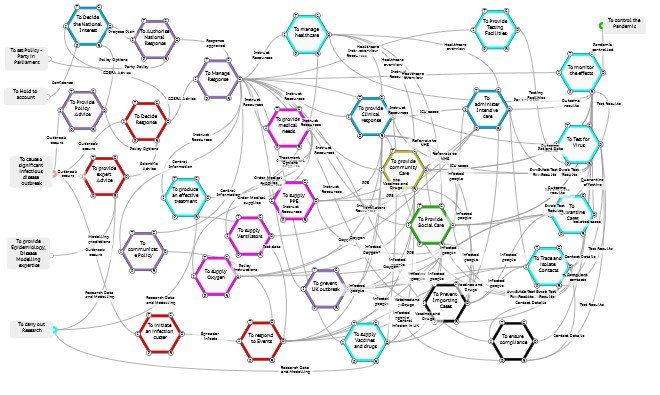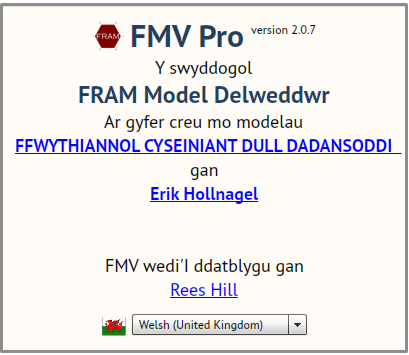
Group members have been very active during what must have been and probably still is, a very demanding time for all. The main activity has seemed to have happened around three centres –which are, in alphabetical order - Cardiff, Manchester and Oxford, although pre COVID, Glasgow produced a number of key studies on Sepsis and Dental Treatments.
At Cardiff, Andy Carson Stevens has set up an interdisciplinary group of clinicians and engineering safety, business school logistics and medical academics – the Welsh Ergonomics and Safer Patients Alliance, (WESPA), that is engaged in projects looking specifically at improving the Emergency Department responses at Cardiff hospitals and working with the NHS Welsh Modelling Collaboration. One paper is in press and other research projects are underway.
At Manchester, Ralph MacKinnon has been very active applying FRAM in a number of studies involving using FRAM to assess simulation results and looking at CPR and Emergency Trauma Response (notably in the Manchester Arena bombing in which he was personally involved). Again, a number of interesting projects are planned, or underway.
Al Ross and Paul Bowie in Glasgow are involved with Duncan McNab in a FRAM-based study on Primary Care, which they’re hoping to publish soon. Al also has a care homes paper on his desk.
Al was also involved with the Oxford paper recently published.
.
The “umbrella” overview modelling of the UK’s response to the COVID 10 pandemic has also now been published and well received to show the range of applications that FRAM is capable of.
Rees Hill has also been busy responding to requests from the users. We now have a very easy to access web version of the FMV and developments to the “sandbox” options in the Pro version. This has been used to assign metadata to individual functions; whose properties emerge as the instantiations develop. A test case paper is in press looking at the Formula 1 pit stop as an example of a dynamic complex sociotechnical system under high speed, high stress, conditions.
Cardiff has held a 1-day Introductory course at their teaching centre.
Manchester is developing a 2-day FRAM course, to be approved by Erik, that could be made available for use in the group and needs feedback on requirements.
There are also plans for follow up practitioner master classes and individual researcher launching tutorials as well as following up the KWIKFRAMMER idea. Interest and contributions gratefully accepted
As the normal FRAMily 2021 has been cancelled, we are proposing a webinar, chaired by Erik, for December 8th (see below from Linked-in Flyer)
“It has unfortunately been impossible to organise the usual FRAMily meeting in 2021. Just
as in 2020, the COVID-19 pandemic has made international travel impossible. But being
optimists, we plan to resume the FRAMily meetings and to get together in Kyoto, Japan in
November 2022.
To keep the interaction going until then, a series of FRAMily webinars will be organised, similar to the webinars that were held earlier this year (https://functionalresonance.com/framily-webinars.html).
The plan is that the webinars will be held bimonthly with a duration of 60 minutes. This will allow for two presentations plus a period of Q&A.
The intention is to have each webinar focus on a specific topic, either a domain (health
care, maritime, construction, etc.) or a specific type of application (design, forecasting, etc.)
and webinar is planned to last for about 45 minutes.
The first webinar will take place on Wednesday December 8, 2021 from 11:00 – 12:00
CET. You are hereby invited to submit suggestions either for a presentation you would like
to make or for a topic you would like to hear more about. Participation in the FRAMily
webinars is free of charge.
Please send your ideas – and comments – to <hollnagel.erik@gmail.com> and
<davidhslater@btinternet.com>.”
It has been suggested that we should have a regular SIREN web get together to update, share ideas, encourage, etc. that we could explore.
If there is enough interest from the group, It is hoped that we could get Andy Carson-Stevens, Ralph Mackinnon, Paul Bowie and Al Ross to steer a way forward, for us.
David Slater 4 / 11 / 21

We now have a Welsh Language Version of the FMV software available on the Functional resonance website - here

Copyright © All Rights Reserved
